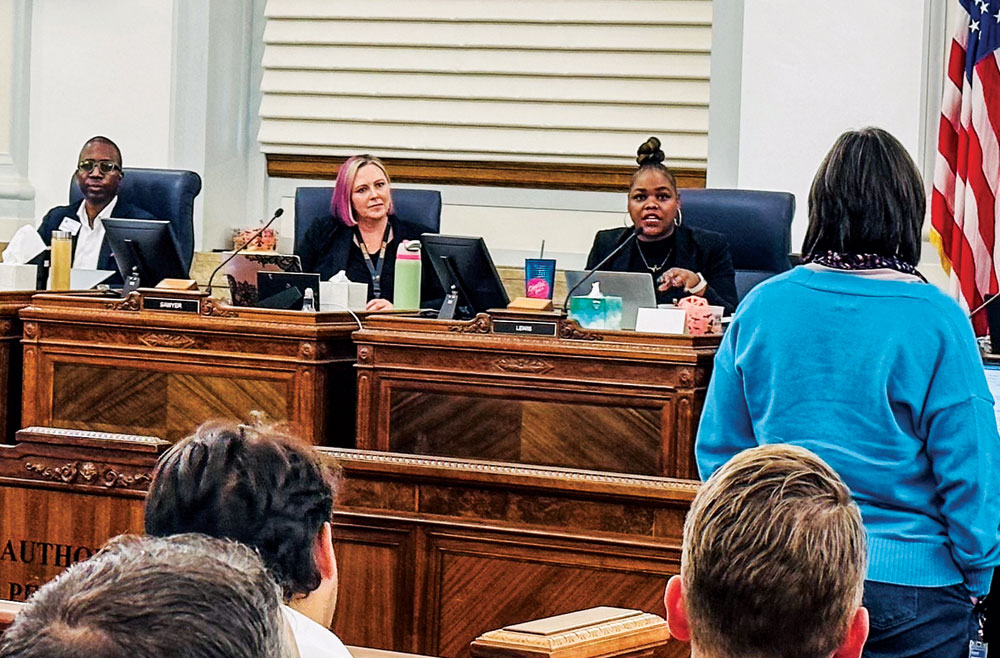
Councilmember Shontel Lewis asks a question of a Salvation Army representative about one of the organization’s city-run shelters. Seated to the left of Lewis are Councilmembers Amanda Sawyer and Darrell Watson. Front Porch photo by Christie Gosch
This fall, Denver Mayor Mike Johnston submitted his first budget proposal, which he described as a “moral document” that reflects the issues that are prioritized by his administration and the services that are provided for the residents. Several City Council members quickly lamented what they said were shortcomings in funding for rental assistance and other social programs, while Denver Clerk and Recorder Paul Lopez said the proposed budget lacks critical spending to safeguard election security. The clashes are expected to escalate during the upcoming budget amendment process in November.
Mayor Johnston’s Initial Budget
The Mayor’s 2024 budget for Denver was $4.04 billion, which breaks the previous record-high of $3.76 billion from last year. The general fund is slated to receive $1.7 billion, and the revenue for the city is projected to increase by 4 percent.
Housing is a significant focus on the 2024 budget. Johnston proposed providing $39.2 million to house another thousand homeless individuals next year and $12.6 million to prevent vulnerable residents from being evicted from their homes. “That’s a 500 percent expansion on rental assistance to prevent the pipeline of folks from entering homelessness,” says Mayor Johnston.
The initial budget also devoted $242 million for the Department of Housing Stability, including $100 million to supply 3,000 affordable units and $365,00 to expedite the permitting process. “We’re making a significant investment in affordable housing,” says Johnston. “Like our House1000 target for 2023, we’re now going to reach for the goal of 3,000 permanently affordable units for working families in 2024 and we need to have more affordable rent across the city.”
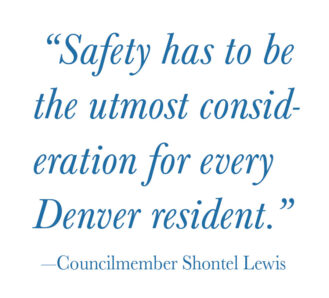 Safety was another theme in the 2024 budget. The initial budget provided $8.2 million for DPD to hire more officers, $7.2 million to enhance the STAR units, and $1.8 million to support the Wellness Winnie program.
Safety was another theme in the 2024 budget. The initial budget provided $8.2 million for DPD to hire more officers, $7.2 million to enhance the STAR units, and $1.8 million to support the Wellness Winnie program.
“We have a historic expansion to public safety,” says Johnston. “We’re going to put 167 more officers on the street to meet the needs there. But we’re also focusing on sending the right responder to the right incident at the right time, so we expanded our STAR program to send mental health workers to people in crisis, and we expanded our co-responder program to send officers and mental health workers together.”
The budget also addressed environmental issues and transportation improvements. The budget gave $2 million to replace old city vehicles with electric vehicles, $1.5 million to distribute more EV charging stations throughout the city, and $15 million for bike lanes, pedestrian crossings, and traffic calming measures. Additionally, other budget areas included $20 million to shelter migrants and $58 million to revitalize downtown.
City Council Proposals
In early October, the Denver City Council submitted proposals to make changes to the 2024 budget and to increase funding for certain programs. Proposals that received a majority of votes were sent to the mayor, and the Johnston administration decided whether to accept the changes or reject the proposals.
The City Council voted on 28 total proposals. Nine of those were submitted by Councilwoman Shontel Lewis, who represents the District 8 neighborhoods that include Central Park, East Colfax, and Northeast Park Hill.
Rental Assistance was an especially high-profile proposal sponsored by Lewis and several other Councilmembers. Although Mayor Johnston provided $12.6 million in the budget for rental assistance, the proposal sought to supply an additional $17.5 million for this program.
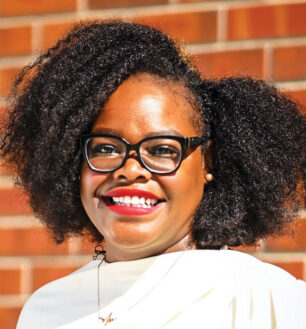
Denver City Councilmember Shontel Lewis.
“We wanted to prevent homelessness, and with the predictions for the number of folks who would become unhoused, we felt like it was a crisis,” says Councilwoman Lewis. “We wanted to provide real sustainable relief, so we worked with community partners and housing experts to identify how much money we needed to keep people housed and prevent that flood of downstream impacts.”
Other proposals submitted by Lewis included more funding to eliminate medical debt, boost the Basic Income Project, and add $15 million for Denver Health.
The City Council also proposed increases for many crime programs, including STAR, youth violence prevention, and an Office of Neighborhood Safety. Transportation proposals included more funds for speed tables, sidewalk improvements, and Vision Zero.
“Safety has to be the utmost consideration for every Denver resident,” explains Lewis, who sponsored the Vision Zero proposal. “Whether people walk, bike, drive or take transit, traffic injuries and deaths are unacceptable and preventable.”
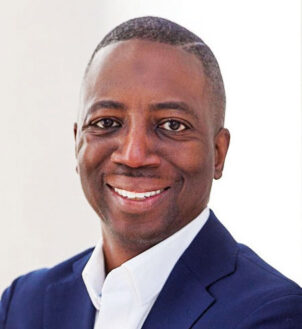
Denver City Councilmember Darrell Watson.
District 9 Councilmember Darrell Watson—who represents North and South Park Hill—was one of the only Councilmembers to vote against many of these proposals, including rental assistance, STAR, and Denver Health. “The City Council has a responsibility to be fiscally responsible and to maintain our balanced budget requirement,” says Councilman Watson. “We wound up providing $80 million of spending without defining where those cuts will come from, I viewed that as a miss, and so I voted against quite a few of those items.”
However, all 28 proposals passed through the City Council and 25 received a supermajority of at least nine votes. After sending the proposals to the Mayor’s office, the Council waited in suspense to learn the fate of their proposals and the decisions of the Mayor.
Response from the Mayor’s Office
On Oct. 13, the Johnston administration sent a letter to the Council and responded to the proposals. Of the nearly $81 million of additional funding requested by the Council, Mayor Johnston approved $10.6 million for the proposals. In the letter, Johnston said, “Your funding proposals totaled $81 million in proposed changes, that is a 450% increase in funding requests compared to the last fiscal year while the overall budget only increased 3.7%.”
In many cases, the Mayor’s office approved the proposals but reduced the funding. For instance, the revised budget provided $3 million of the $17.5 million requested for rental assistance, which ignited a dispute with many City Councilmembers who have threatened to address that funding level in the amendment process. The revised budget also gave $3 million of the $15 million requested for Denver Health, and $1 million of the $10 million proposed for transportation improvements.
The Johnston administration also rejected some proposals while contending that they were already sufficiently funded or could be addressed through other methods, including proposals for expanding STAR and eliminating medical debt.
Councilwoman Lewis had mixed reactions to these results. “I thought it was great that the Mayor approved a lot of our proposals and I appreciate him understanding that these are important,” says Lewis. “But the funding levels were disappointing. We allocated those specific dollar amounts to address the problems based on our consultations with experts, so we need to do some work to ensure that we’re providing adequate funding levels to benefit the entire city.”
Elections Division Funding Dispute
Another contentious dispute during the budgetary process occurred with the Elections Division. The budget increased its annual funding by 25 percent to accommodate the additional resources needed during a presidential election cycle. But Denver Clerk and Recorder Paul Lopez also submitted a one-time capital request to fund security upgrades for the election system.
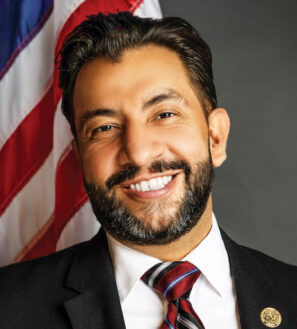
Denver Clerk and
Recorder Paul López.
“All around the country, we’ve seen threats to elections officials, threats to poll workers, and threats to disrupt the elections process with sabotage.” says Lopez. “These threats are very real, so we have to mitigate them for the upcoming 2024 election.”
As a result, Lopez asked for $942,000 in the capital request for security upgrades, of which $175,000 was granted. “It was a surprise to see our security upgrades request for the budget get reduced by 81 percent, and we didn’t have any communications or warnings” says Lopez.
A statement provided on behalf of the Mayor’s Office asserts, “Election integrity and security is always a priority in our city….The Clerk’s 2024 budget already includes a 25% increase in the operating budget for the Elections Division and $175,000 in security improvements.”
Lopez contends that the annual funding pays for equipment and staffing, but that the full capital request would be needed to fund the security system upgrades. “We don’t set the costs—the vendors do,” says Lopez. “It’s for installing cameras, ensuring we have complete control of our buildings, and ensuring our election workers are safe while they’re working long hours and doing their civic duty.”
Lopez is currently negotiating with the Mayor’s Office to resolve the conflict, but he also has another option to receive the funding. “The city charter states that the City Council has an obligation to fully fund my ability to do my job, so I’m working with three Councilmembers as sponsors to amend the budget if needed.”
The next steps involve the City Council proposing amendments on Nov. 6, the Mayor’s office accepting or vetoing those amendments on Nov. 10, and the Council voting on the Final Passage of the budget on Nov. 13.


0 Comments